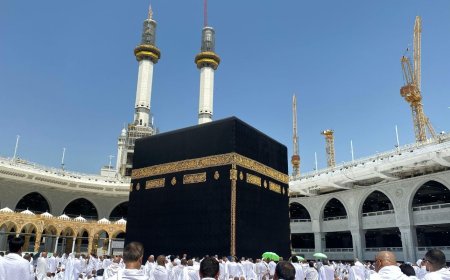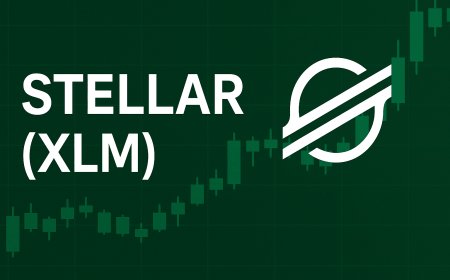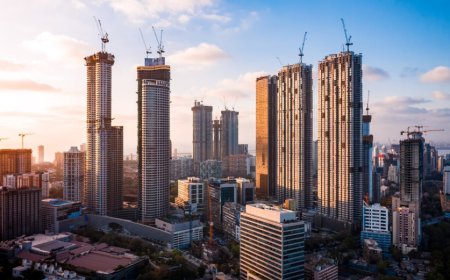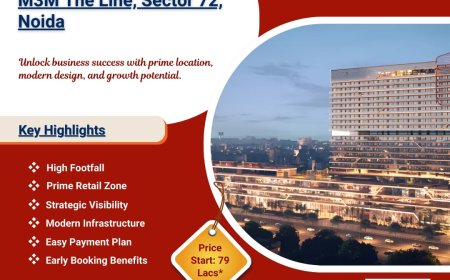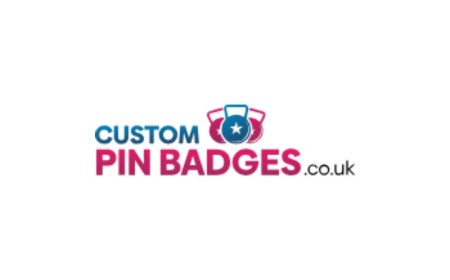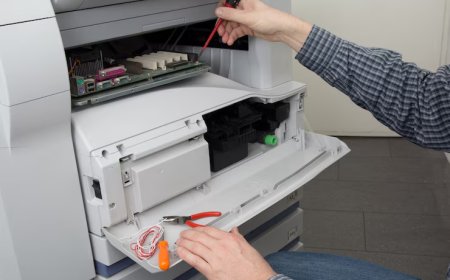Top 10 Vintage Bookstores in Washington
Introduction In a world increasingly dominated by digital screens and algorithm-driven recommendations, the tactile experience of browsing a vintage bookstore remains a sanctuary for the soul. For collectors, historians, and casual readers alike, the allure of aged paper, faded spines, and handwritten marginalia offers more than nostalgia—it connects us to the intellectual and cultural currents of
Introduction
In a world increasingly dominated by digital screens and algorithm-driven recommendations, the tactile experience of browsing a vintage bookstore remains a sanctuary for the soul. For collectors, historians, and casual readers alike, the allure of aged paper, faded spines, and handwritten marginalia offers more than nostalgia—it connects us to the intellectual and cultural currents of bygone eras. But not all vintage bookstores are created equal. In Washington, where literary tradition runs deep and independent businesses thrive against the tide of homogenization, finding a bookstore you can trust requires more than a Google search. It demands insight, reputation, and a proven commitment to quality.
This guide presents the top 10 vintage bookstores in Washington that have earned the trust of generations of readers. These are not merely shops that sell old books—they are institutions built on expertise, integrity, and an unwavering passion for the written word. Each has been selected based on decades of consistent service, authentic inventory, transparent pricing, community engagement, and the respect of fellow bibliophiles. Whether you’re hunting for a first edition of Hemingway, a 1940s pulp mystery, or a rare Washington State regional history, these stores offer more than merchandise—they offer authenticity.
Before we explore the list, it’s essential to understand why trust matters in the world of vintage books—and how to recognize a store that truly values its customers and its collection.
Why Trust Matters
The vintage book market is rife with ambiguity. Unlike mass-produced modern titles, vintage books carry no standardized barcodes, no universal grading systems, and no centralized databases of authenticity. A book’s value hinges on condition, edition, printing history, provenance, and sometimes, the faintest of inscriptions. Without expert knowledge, a buyer risks overpaying for a common reprint, misidentifying a first edition, or unknowingly acquiring a damaged or altered copy.
Trust in a vintage bookstore means confidence that the seller has the experience to distinguish between a 1925 true first printing and a 1970s facsimile. It means assurance that pricing reflects fair market value, not opportunistic markup. It means knowing the staff can identify dust jackets, binding variations, and publisher codes—not just guess based on the cover.
Trust also extends to transparency. A reputable store will disclose flaws, note restoration work, and never misrepresent a book’s origin. They will welcome questions, offer research assistance, and prioritize long-term relationships over quick sales. In Washington, where literary heritage is both celebrated and fiercely protected, the most trusted bookstores are those that treat each volume as a piece of cultural heritage—not just inventory.
Moreover, trust is built over time. These stores have survived economic downturns, rising rents, and the digital shift because their customers return—not because of discounts, but because of reliability. The bookstores on this list have been recommended by librarians, historians, and collectors for decades. They are the places where seasoned collectors go to find their next treasure—and where newcomers are welcomed with patience and expertise.
When you enter one of these stores, you’re not just walking into a shop. You’re stepping into a legacy.
Top 10 Vintage Bookstores in Washington
1. The Book Larder – Seattle
Nestled in the heart of Seattle’s Capitol Hill neighborhood, The Book Larder is a beloved institution that has curated vintage and rare titles since 2008. Though relatively young compared to some on this list, its reputation for meticulous curation and deep literary knowledge has earned it a permanent place among Washington’s most trusted vintage book sources. The store specializes in mid-20th-century fiction, literary journals, and Pacific Northwest regional writing. Its shelves are organized by theme rather than alphabetically, encouraging serendipitous discovery. Staff members are trained in bibliographic identification and can date editions by imprint, spine design, and copyright page details. The Book Larder is known for its rotating “Hidden Gems” section, where rare finds—often overlooked by other dealers—are spotlighted with detailed provenance notes. Many customers return specifically for their collection of signed first editions by Northwest authors like Richard Hugo and Ursula K. Le Guin.
2. Elliott Bay Book Company – Seattle
Elliott Bay Book Company, founded in 1973, is more than a bookstore—it’s a landmark. Located in Seattle’s Pioneer Square, it has survived multiple relocations and industry upheavals to remain one of the largest independent bookstores in the Pacific Northwest. While it carries new releases, its vintage and rare section is one of the most respected in the state. The store’s team includes certified book appraisers and former librarians who handle everything from 18th-century theological texts to 1960s Beat poetry chapbooks. Their vintage inventory is meticulously cataloged and stored in climate-controlled back rooms. What sets Elliott Bay apart is its commitment to provenance: every rare book is accompanied by documentation of its history, if known. They regularly host book fairs and author talks focused on literary history, and their online archive of past rare book sales is a resource for scholars across the country. For collectors, Elliott Bay is a destination.
3. Third Place Books – Lake Forest Park
While primarily known for its curated new releases, Third Place Books’ vintage and antiquarian section has quietly become one of Washington’s most reliable sources for mid-century paperbacks, vintage children’s books, and out-of-print academic titles. Located in a community-centered space that includes a café and event hall, the store maintains a separate vintage room with a rotating inventory of 2,000+ titles. What makes Third Place trustworthy is its strict policy: no books are accepted unless they are in at least “good” condition, and all items are reviewed by a dedicated antiquarian buyer with over 25 years of experience. Their collection includes a strong selection of 1950s–70s science fiction, feminist literature, and Pacific Northwest photography books. The staff does not push sales; instead, they offer context. Want to know why a 1962 Dell paperback of “Dune” is valuable? They’ll explain the significance of the cover artist, the print run, and how it compares to the later Doubleday edition. This level of educational service is rare.
4. The Book Bin – Olympia
For over 40 years, The Book Bin has served as Olympia’s literary heartbeat. Housed in a converted 1920s bank building, this family-run store specializes in vintage academic texts, political pamphlets, and regional history. Its strength lies in its depth of nonfiction: you’ll find original 1930s USDA agricultural reports, 1950s labor union newsletters, and rare Washington State legislative documents. The owners, now in their 70s, still personally sort every donation and purchase, refusing to stock anything they haven’t reviewed with their own hands. Their pricing is conservative and consistent—no sudden spikes, no hidden fees. The Book Bin is also known for its “Ask the Archivist” desk, where visitors can bring in personal collections for informal appraisal. It’s not a commercial appraisal service; it’s a conversation. This human touch, combined with their refusal to sell counterfeit or altered items, has made them a trusted resource for historians, students, and genealogists.
5. Rainy Day Books – Bellingham
Founded in 1994, Rainy Day Books has carved a niche as the Pacific Northwest’s premier destination for vintage children’s literature and illustrated books. Its collection includes first editions of Beatrix Potter, early Dr. Seuss prints, and 1920s–40s Golden Books with original dust jackets intact. The owner, a former school librarian, has spent decades sourcing and preserving children’s books with cultural and artistic significance. Every item is graded using the standard bibliographic system (Fine, Very Good, Good, etc.), and condition notes are handwritten on each book’s inside cover. Rainy Day Books refuses to sell books with torn pages, missing illustrations, or non-original bindings—even if the title is rare. Their reputation for integrity has attracted collectors from as far as Canada and California. They also publish a quarterly catalog of new arrivals, mailed free to subscribers, which includes historical context for each piece. For anyone seeking the emotional resonance of childhood classics in their original form, Rainy Day Books is unmatched.
6. The Literary Exchange – Spokane
Located in Spokane’s historic Browne’s Addition district, The Literary Exchange has operated since 1981 with a mission to preserve and circulate literature that might otherwise vanish. Its vintage collection spans genres but excels in mid-century poetry, existentialist philosophy, and Cold War-era political writing. What distinguishes this store is its community model: it operates as a nonprofit cooperative, where members donate books and earn store credit. Every book is reviewed by a panel of three trained volunteers before being shelved. This system ensures quality control and prevents the influx of low-value or damaged material. The store’s staff includes retired professors, archivists, and writers who offer impromptu literary tours. If you’re looking for a first edition of Simone de Beauvoir’s “The Second Sex” in its original French binding, or a 1967 limited-run poetry chapbook from a now-defunct Spokane press, this is the place. Their inventory is not large, but it is deeply curated—and always authentic.
7. Port Townsend Book Company – Port Townsend
Perched on the Olympic Peninsula, this charming storefront has been a literary haven since 1976. The Port Townsend Book Company specializes in vintage maritime literature, naturalist writing, and early Pacific Northwest travelogues. Their collection includes rare 19th-century logs from Hudson’s Bay Company expeditions, original Audubon bird studies, and hand-bound journals from early settlers. The owner, a former maritime historian, personally verifies the authenticity of every historical document and map in stock. Unlike many stores, they do not digitize or photocopy fragile materials—they preserve them in situ. The store hosts monthly “Manuscript Mondays,” where visitors can bring in family letters, diaries, or photographs for informal historical consultation. Their commitment to conservation over commerce has earned them recognition from the Washington State Historical Society. For those seeking books that tell the story of the region’s landscape and seafaring past, this is the definitive destination.
8. The Old Bookshop – Bainbridge Island
On a quiet corner of Bainbridge Island, The Old Bookshop has been operating since 1967, making it one of Washington’s oldest continuously run vintage bookstores. Its inventory is eclectic but carefully selected: Victorian novels, early 20th-century art books, and vintage scientific manuals dominate the shelves. What makes it trustworthy is its policy of “no reprints, no reproductions.” If a book is listed as a first edition, it is verified by comparing publisher codes, binding materials, and paper quality against archival records. The shop’s founder, now retired, left behind a detailed catalog of every acquisition since 1970—a resource still used by staff to authenticate new arrivals. They also maintain a “Book of Provenance,” where each significant item is recorded with its previous owner, if known. Customers often return years later to share stories about books they bought here—some have become family heirlooms. The Old Bookshop doesn’t advertise. Its reputation speaks for itself.
9. Book Lighthouse – Bellingham
Book Lighthouse is a small but formidable presence in Bellingham’s literary scene. Founded in 2005 by a former rare book librarian, it specializes in 19th and early 20th-century American literature, with an emphasis on first editions of authors like Mark Twain, Emily Dickinson, and Walt Whitman. The store’s collection is stored in a temperature- and humidity-controlled vault, and each book is photographed and cataloged digitally with high-resolution scans of title pages and inscriptions. What sets Book Lighthouse apart is its transparency: every listing includes a full condition report, provenance history, and a note on whether the dust jacket is original. They do not sell books without clear documentation. Their clients include university libraries and private collectors who rely on their meticulous records. The owner personally verifies every acquisition, often traveling to estate sales across the state to source materials. If you need a verified, documented, and impeccably preserved first edition, Book Lighthouse is your most reliable source in Washington.
10. The Word Vault – Seattle
The Word Vault, located in the Georgetown neighborhood, is a hidden gem that has quietly become a favorite among serious collectors. Its focus is on avant-garde literature, underground zines, and rare small-press publications from the 1960s–1990s. The store’s inventory includes handwritten manuscripts, mimeographed poetry collections, and self-published political broadsides that are nearly impossible to find elsewhere. The owner, a former punk zine distributor turned bibliophile, has spent 30 years building relationships with writers, artists, and activists who donated their personal archives. Every item is cataloged with context: who printed it, where it was distributed, and why it mattered. The Word Vault does not sell common reprints or mass-market paperbacks. What’s here is rare, raw, and real. Their motto: “If it wasn’t important when it was made, it doesn’t belong here.” This uncompromising standard has earned them a cult following among literary historians and cultural archivists. Visiting The Word Vault feels like stepping into a living archive of counter-cultural thought.
Comparison Table
| Bookstore | Location | Specialty | Years in Operation | Provenance Documentation | Condition Transparency | Staff Expertise | Community Engagement |
|---|---|---|---|---|---|---|---|
| The Book Larder | Seattle | Mid-century fiction, PNW authors | 2008 | Yes | High | Specialized in bibliographic identification | Regular author events |
| Elliott Bay Book Company | Seattle | First editions, rare academic texts | 1973 | Extensive | Exceptional | Certified appraisers, former librarians | Book fairs, scholarly talks |
| Third Place Books | Lake Forest Park | 1950s–70s sci-fi, feminist literature | 2005 | Yes | High | Trained antiquarian buyer | Community café, reading groups |
| The Book Bin | Olympia | Academic texts, regional history | 1980 | On request | Very High | Owner-curated, archival knowledge | “Ask the Archivist” desk |
| Rainy Day Books | Bellingham | Children’s literature, illustrated editions | 1994 | Yes (handwritten notes) | Exceptional | Former school librarian | Quarterly illustrated catalog |
| The Literary Exchange | Spokane | Poetry, philosophy, Cold War texts | 1981 | Yes | High | Volunteer panel of academics | Nonprofit cooperative model |
| Port Townsend Book Company | Port Townsend | Maritime history, naturalist writing | 1976 | Yes | Exceptional | Maritime historian owner | “Manuscript Mondays” consultations |
| The Old Bookshop | Bainbridge Island | Victorian novels, art books | 1967 | Extensive (Book of Provenance) | Exceptional | Owner’s personal archives | Word-of-mouth legacy |
| Book Lighthouse | Bellingham | 19th–20th century American first editions | 2005 | Extensive (digital catalog) | Exceptional | Former rare book librarian | Private acquisitions, library partnerships |
| The Word Vault | Seattle | Underground zines, avant-garde texts | 2001 | Yes (contextual notes) | High | Former zine distributor, cultural archivist | Archival preservation focus |
FAQs
How do I know if a vintage bookstore is trustworthy?
A trustworthy vintage bookstore will have staff who can answer specific questions about editions, printing dates, and condition. They will disclose flaws honestly, avoid inflated pricing, and provide documentation when available. Look for stores that have been in business for decades, have repeat customers, and are recommended by libraries or literary societies. Avoid places that pressure you to buy, refuse to let you examine books closely, or claim everything is “rare” without evidence.
Are all old books valuable?
No. Age alone does not determine value. A book’s worth depends on its edition (first editions are most valuable), condition, rarity, historical significance, and demand. A 1920s paperback of a common novel may be worth only a few dollars, while a first printing of a groundbreaking work in excellent condition could be worth thousands. Always research the title and author before purchasing.
Can I get my personal book collection appraised at these stores?
Yes—several of these stores, including The Book Bin and Port Townsend Book Company, offer informal appraisal consultations. While they may not provide formal written appraisals for insurance purposes, they can give you a realistic estimate of value based on market trends and condition. It’s best to call ahead and ask about their policy.
Do these stores buy books from individuals?
Most do—but selectively. Trusted bookstores typically only accept books that meet their quality and relevance standards. They often decline mass-market paperbacks, damaged volumes, or common reprints. If you’re looking to sell, bring your books in person and be prepared for a thoughtful, not rushed, evaluation.
Is it better to shop in person or online?
For vintage books, shopping in person is strongly recommended. Physical inspection allows you to assess condition, binding, and provenance firsthand. Online listings often lack detail or use misleading photos. The stores on this list all have robust online inventories, but the most reliable transactions occur when you visit the shop and speak with the staff.
What should I look for when examining a vintage book?
Check the copyright page for printing history—first editions often state “First Edition” or list a single year. Examine the binding for originality, the dust jacket for tears or fading, and the pages for foxing, writing, or water damage. Look for inscriptions or bookplates that indicate provenance. A book with its original jacket and in clean condition is far more valuable than one without.
Do these stores offer shipping?
Yes, all of them offer secure, insured shipping for vintage books. Many use archival-quality packaging and provide tracking. Always confirm the condition report before shipping and ask about return policies in case the book does not match its description.
Are there any events or book fairs in Washington for vintage books?
Yes. Elliott Bay Book Company hosts an annual Rare Book Fair each fall. The Washington State Library also organizes regional book collecting symposiums. Many of these stores participate in local literary festivals, where you can meet owners, browse curated selections, and learn directly from experts.
Can I donate books to these stores?
Several, including The Literary Exchange and The Book Bin, welcome donations. They typically accept books in good condition that align with their specialty areas. Contact them ahead of time to learn what they’re seeking. Donations are often tax-deductible, and many stores provide a receipt.
Why do vintage book prices vary so much between stores?
Price differences arise from variations in condition, provenance, rarity, and the seller’s overhead. A bookstore with climate-controlled storage, expert staff, and detailed documentation may price higher—but that reflects the value of trust, preservation, and authenticity. Cheaper prices may indicate poor condition, unknown origin, or mass-market reprints.
Conclusion
The ten bookstores profiled here are more than retail spaces—they are guardians of literary memory. In an age where information is fleeting and attention is fragmented, they offer something rare: permanence. Each of these stores has earned its place not through marketing, but through decades of quiet dedication to the craft of bookselling. They have resisted the pressure to become warehouses of discount paperbacks. They have chosen instead to be sanctuaries of curation, where every spine holds a story worth preserving.
When you walk into The Book Larder, Elliott Bay, or The Word Vault, you’re not just buying a book. You’re becoming part of a lineage—a chain of readers who valued the written word enough to protect it, to understand it, and to pass it on. The trust these stores have built is not transactional; it is relational. It’s the trust of a librarian who remembers your last request, of an owner who knows the history of every first edition on her shelf, of a volunteer who spent years cataloging obscure zines so they won’t be lost.
Supporting these bookstores isn’t just an act of commerce. It’s an act of cultural stewardship. In choosing to buy from them, you affirm that history matters—that the smell of old paper, the weight of a hardcover, and the quiet solitude of a well-worn library chair are not relics of the past, but necessities of the present.
So the next time you’re in Washington, seek out one of these places. Take your time. Ask questions. Let the shelves guide you. You may not find what you’re looking for—but you’ll almost certainly find something you didn’t know you needed.





